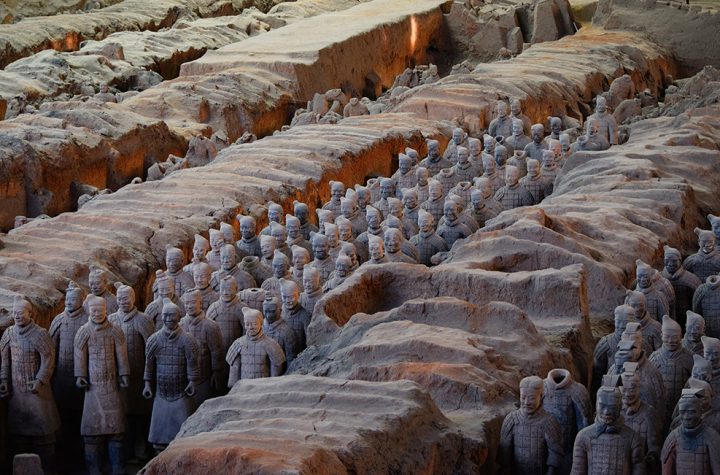
NT: I want to stick with protect, because I totally agree with all the promotion. I wish there was even more promote. I’m totally, all the money you can put in AI, all the great AI research you can bring here, totally down with that. But that’d be boring. But with the protect, I feel like there may be more of a disagreement. So what could the Chinese government do that wouldI mean if the Chinese government were to credibly say, “We are no longer using AI to surveil the Uighurs, we are no longer using AI to suppress people and track protesters,” would that change your policy?
MK: Well if you read the notice that we sent out when those companies were added to the entities list, we cite those specific things. So if those in some alternate reality were not true anymore, then there would be no reason for them to be on the list.
NT: So let’s start with the implications of the entities list. So Huawei, one of the largest Chinese phone manufacturers, as a result of being put on the list is no longer going to use Android. They’re going to develop their own operating system. And in fact, you go out on the floor and you talk to other Chinese companies, they say, “I don’t know, we used to really want to work with the US companies. We used to really want to use Android. I mean, it’s still great, but like once Huawei builds their OS, we’re going to use that instead.” So how is it in the US national interest to suddenly have hundreds of millions of phones around the world that don’t have Android, but have Huawei OS?
MK: The better question is, how is it in the US interest for Huawei to be part of our network, and to let an authoritarian regime that has attempted to undermine and compete with the United States have access to our technology. And I think that is a dramatically more
NT: But isn’t that different? Can’t you ban Huawei from being part of our 5G networks without putting it on the entities list?
MK: The entities list is the legal path that makes the most sense. And as I said, I think it’s critically important for the rest of the world to be a little more cognizant and understand the threats posed by these companies in particular. Their practices are well documented, from stealing IP and using these techniques around the world. This is not a company that any rational business person would want to do business with.
NT: How worried are you that one of the implications will be, you know, something that we at WIRED have called the new Cold War, where there is a Chinese tech stack with Huawei 5G, and you know, Chinese-made phones running a Huawei OS. And there’s a Western tech stack with Ericsson 5G, and Apple, Google, whatever it is. Does it worry you if you think about a future where we split that way? Or is that just the inevitable consequence of changing things?
MK: I don’t know if it’s an inevitable consequence. I don’t want to make a postulation of that magnitude. But again, I think the truth is, when you’re dealing with players that are exhibiting this type of behavior, just ignoring them, ignoring your problem, is not the solution. And I think we as the West generally need to be a lot more open-eyed about the situation we’re facing, and some of these operators, and their practices and use of this technology, is something that should concern us greatly.
NT: So what is the best-case scenario for the relationship between the US and Chinese tech industries over, say, the next five years? Give me the best-case scenario, and give me your worst-case scenario.





More Stories
The BMC has banned fire crackers in all public and private places within the city limits.
Apple has cut off major supplier Pegatron from new contracts following the reveal of student labor violations. Pegatron is one of Apple’s biggest supply chain partners, manufacturing various products including some of the newest iPhone 12 models.